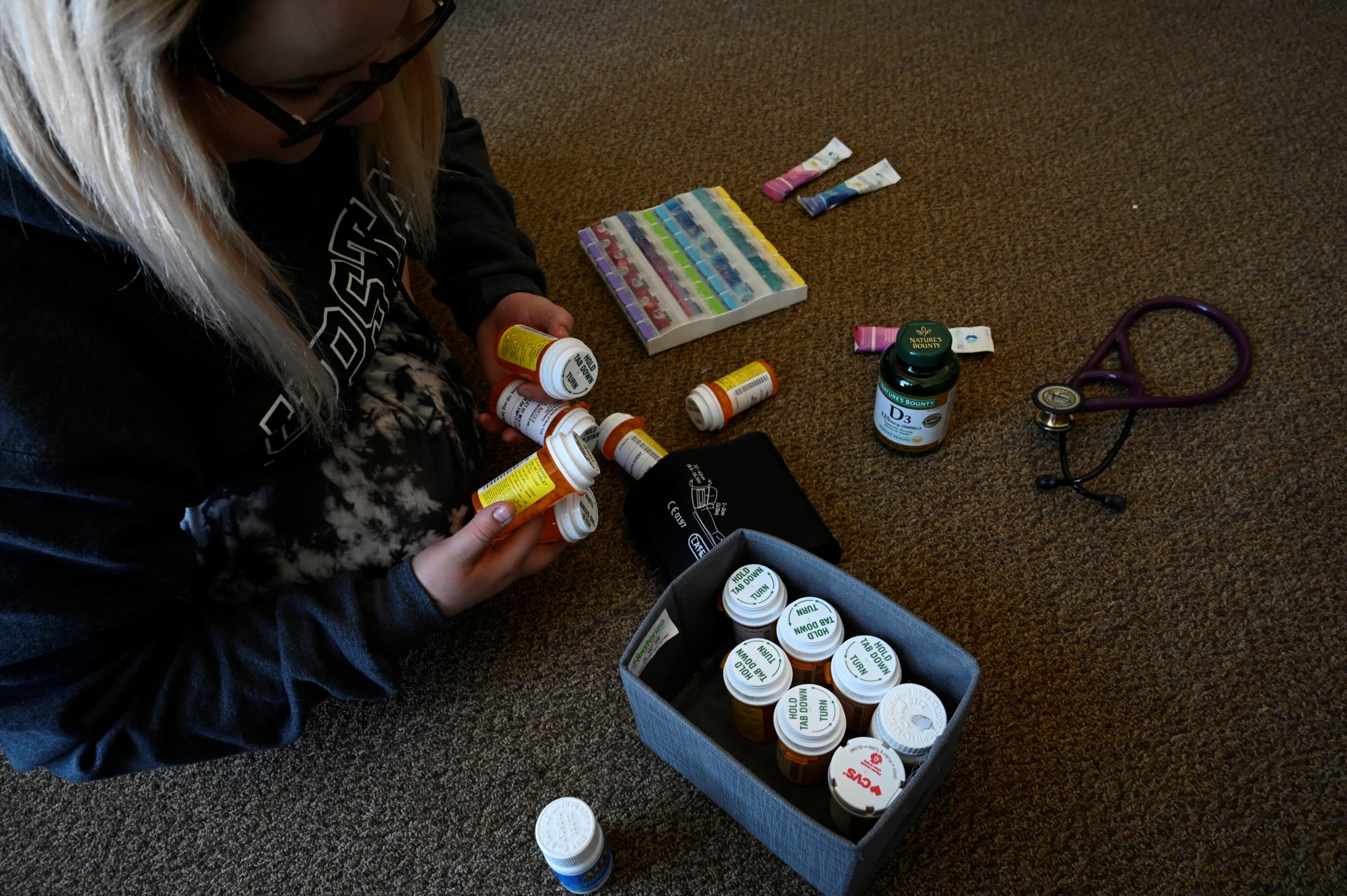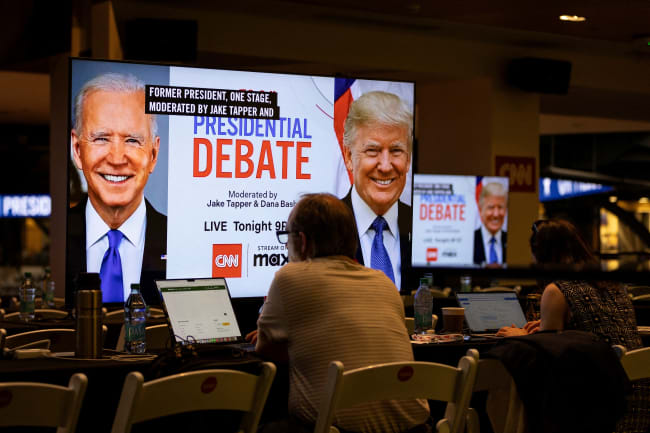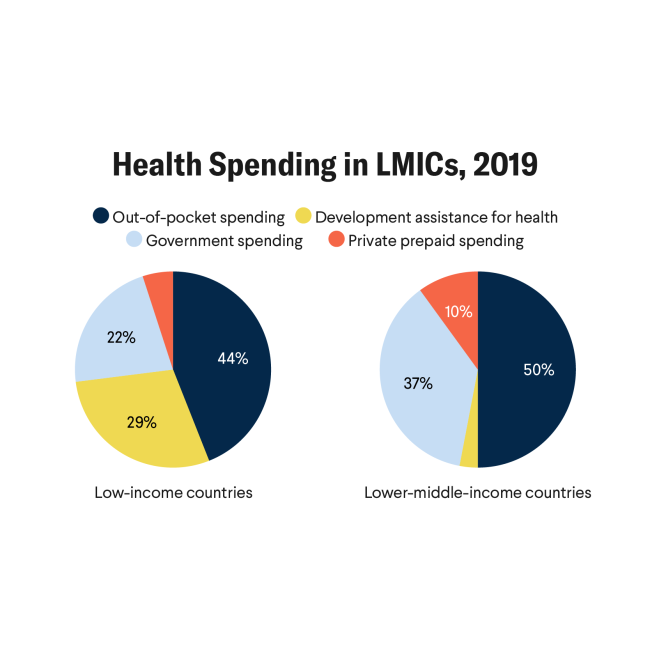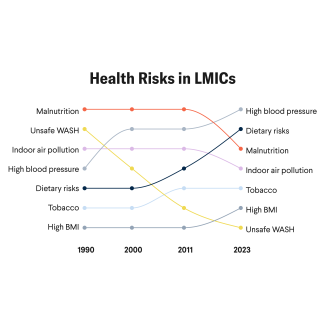As the United States faces a last-minute election shakeup, all eyes are on the youth vote. In the span of a week, incumbent President Joe Biden dropped out of the race, former President Donald Trump survived an assassination attempt, and Democrats rallied around Vice President Kamala Harris with Biden's endorsement. This reshuffling has opened the opportunity for both Trump and presumptive nominee Harris to reframe the health-care debate.
A record number of young Americans turned out in 2020 to elect Joe Biden and Harris. Exit polls showed voters younger than 30 favored the Biden-Harris ticket by more than a 20-point margin. As Harris ramps up her campaign for president and Republican JD Vance enters the spotlight as the party's vice presidential nominee, many are wondering whether young Americans will show up to the ballot box again.
Young voters have a lot on their minds, including climate change, immigration, and the Israel-Hamas war. Yet, when asked to weigh 16 major national issues against each other, they say that inflation, health care, and housing are their top three concerns in 2024.
The Harvard Youth Poll, a twice-a-year national survey of approximately 2,000 people ages 18 to 29, sheds some light on how young Americans view issues such as health care. Just like the rest of the population, young Americans take prescription medications, manage chronic conditions, struggle with addiction, and feel the impacts of health policy firsthand—it is, therefore, no surprise that health care is a youth issue in 2024.
A lot is on the table. The U.S. Census Bureau estimates that more than 25 million Americans younger than 30 voted in the 2020 elections. Health insurance, abortion, and mental health are a few key areas that could provide candidates with a unique opportunity to win the support of young voters.
The Role of Government
Biden and Trump have offered different visions for the role of government in health care. If the Democratic Party selects Harris as its nominee, she will inherit a legacy of working with Biden to reduce prescription drug costs. When she ran in the 2020 Democratic primary, Harris also proposed a Medicare for All plan with a private option.
Young Americans today are more likely to support the government playing an active role in health care
At the end of his term in 2020, Trump called out Democrats' approach to health care at a speech in North Carolina, arguing that their plan would ration care and deny choice. In the same speech. Trump also accused Harris of working to "outlaw the private health plans of 180 million Americans." Instead, Trump proposed an approach that includes ending surprise medical billing. Both Trump and Biden have worked on eliminating such billing practices.
Compared with their predecessors a decade ago, young Americans today are more likely to support the government playing an active role in health care. Today, roughly two-thirds of Americans under 30 say that "basic health insurance is a right for all people and, if someone has no means of paying for it, the government should provide it." That figure has increased across party lines, with young Independents and young Republicans more likely to believe in basic health insurance for all than they did in 2014.
Support for Basic Health Insurance Gains Popularity for 18- to 29-year-olds
Across all party affiliations, more young voters agree that health insurance is a right for all people
The increase in support for universal health coverage from Gen Z and Millennials across party lines could welcome a new era for U.S. health policy. Young Republicans and Democrats have grown more comfortable with the idea that basic health insurance is a right for all Americans, not a privilege. As those voters age into the electorate, candidates will find themselves talking more about universal health care.
Although much of the conversation on health care centers on seniors covered by Medicare, the rising cost of health care is especially acute for young Americans. Adults under 35 are more likely than the rest of the population to either defer care because of cost or report problems affording health care. Part of this issue stems from the trend that young adults are more likely to be uninsured than any other age group. As young adults enter the job market through part-time and entry-level employment, they also have the lowest access to employer-based insurance.
When Biden was vice president in 2010, Democrats in Congress passed the Affordable Care Act (ACA), which brought about the biggest expansion of health-care access for young adults in the twenty-first century. The landmark legislation included a statute that allows children to remain on their parents' health plans until they turn 26. In the five years after the ACA was passed, the uninsured rate for 19- to 25-year-olds dropped by half. The change was most pronounced in those not enrolled in school, for whom the uninsured rate dropped from 42% in 2010 to 21% in 2015.
To some extent, Democrats are still reaping the political benefits of the ACA with young Americans. Like the broader electorate, young Americans are more likely to trust Biden over Trump when it comes to handling health care. Yet, in the fall of 2023, 37% of young adults reported that they trusted neither candidate on health care. Biden's exit from the race opens a window for Democrats and Republicans to gain ground on this important issue.
Young Voters Split on Trust in Presidential Candidates
Prior to Biden's withdrawal, more than a third of poll respondents reported in autumn 2023 that they trusted neither candidate to handle health care in the United States
Republicans are also trying to sway federal health insurance supporters. The 2024 Republican Party platform demonstrates a notable departure from the GOP's position on Medicare throughout the 2010s. For the first time, the platform promises no cuts to Medicare and no increase in the retirement age.
Reproductive Health and Abortion
Reproductive health care has also emerged as a key issue for youth in the 2024 cycle, but depending on who you ask, women's reproductive rights can mean many different things. In-vitro fertilization (IVF), contraception, and abortion are often brought up in this political context.
The Spring 2024 Harvard Youth Poll found that women's reproductive rights was the only major national issue of 15 that beat inflation in a head-to-head matchup that asked respondents to pick which of two randomly selected issues was more important to them.
IVF, contraception, and abortion are especially salient for young adults. Restrictions on access to IVF, contraception, and abortion influence the way young adults make life decisions about career and family. The stakes are particularly high for young women between the ages of 18 and 29—of whom 69% say that "legal access to reproductive health care, including abortion, is important when choosing where to live."
Gallup conducted a national survey on attitudes toward abortion immediately after a draft of the Supreme Court's decision in Dobbs v. Jackson Women's Health Organization leaked in May 2022. The poll found an uptick in identification with the pro-choice label and support for abortion access, driven primarily by younger Americans and women. Young Americans today are significantly more supportive of abortion access than they were in 2016. Still, a quarter of Americans under 30 identify as pro-life, and 1 in 10 say that abortion should not be permitted at all.
Women's reproductive rights was the only major national issue of 15 that beat inflation in a head-to-head matchup
In several states, including Florida, Nevada, and New York, voters will decide on ballot measures related to abortion. Arizona, Montana, and Pennsylvania, all home to competitive races in 2024, could also join that group. Results from the Fall 2023 Harvard Youth Poll indicate that those ballot measures could bolster youth turnout. Of young Americans who are not sure whether they will be voting for president in 2024, 22% say that they definitely would turn out for a state abortion referendum. As public opinion on abortion has shifted, the Republican Party has changed its official stance, opting not to include a national ban in its 2024 platform for the first time in decades. Instead, the platform focuses on late-term abortions and passing the issue of abortion onto states. In 2018, Trump backed a 20-week national ban on abortion that ultimately failed in the Senate. At a Chicago fundraiser in April, Biden argued that Trump would indeed sign a national abortion ban sent to his desk.
Young people are also playing a key role beyond the ballot box. Youth movements, pro-choice and pro-life, have cropped up in recent years. The impact of this mobilization will be felt in November when millions of young Americans consider candidates and ballot initiatives based on how they affect abortion access.
Mental Health
The conversation on health care and the youth vote needs to include mental health. Mental illness has a disproportionate impact on young adults and adolescents. A 2022 survey from the Substance Abuse and Mental Health Services Administration reports that young adults are more likely to have a serious mental illness than their older counterparts. At the same time, young adults with such illnesses are less likely to receive the mental health services needed to treat them.
Roughly half (44%) of young Americans report feeling down, depressed, or hopeless at least several times in the last few weeks. This figure from the Harvard Youth Poll has decreased from a high of 52% in 2022. Yet mental health remains a serious challenge for millions of young adults across the country. One in five young Americans has expressed suicidal ideation or thoughts of self-harm at least several times in the last two weeks. Three percent say they have these thoughts nearly every day.
In recent years, policymakers have worked to expand youth access to mental health care. The launch of the 988 national suicide and crisis lifeline in July 2022 was a major step in the push to address youth mental health. Despite challenges with workforce shortages and limited language access, the hotline answers hundreds of thousands of calls, chats, and texts each month. AmeriCorps, an independent U.S. government agency for volunteer service, hopes to address the youth mental health crisis by creating the Youth Mental Health Corps. The peer-to-peer model, set to launch in fall 2024, aims to empower young people to tackle mental health challenges in their communities.
Governments have an important role to play in shaping the mental health-care workforce, mitigating the harms of substance abuse, and changing the way social media companies engage with digital natives. In the United Kingdom, recent party manifestos highlighted youth mental health and substance abuse, offering a variety of proposals. Any youth-oriented health-care platform should include plans to address the gaps in mental health care that young adults face.
The World Stage
The issues of cost, abortion, and mental health are not uniquely American—nor are they the only issues weighing on young people. The opioid crisis, the recent uptick in sexually transmitted diseases, and gun violence are just a few other health issues affecting young Americans. Youth around the world are grappling with these concerns in their daily lives. Their participation in democratic processes will reflect this fact.
The result of the U.S. presidential election, as well as elections around the world in 2024, will depend in part on the ability of candidates to tap into these health-care concerns. Making headway with young voters—who have historically been hard to reach—means tackling these many challenges under a unified youth health agenda.
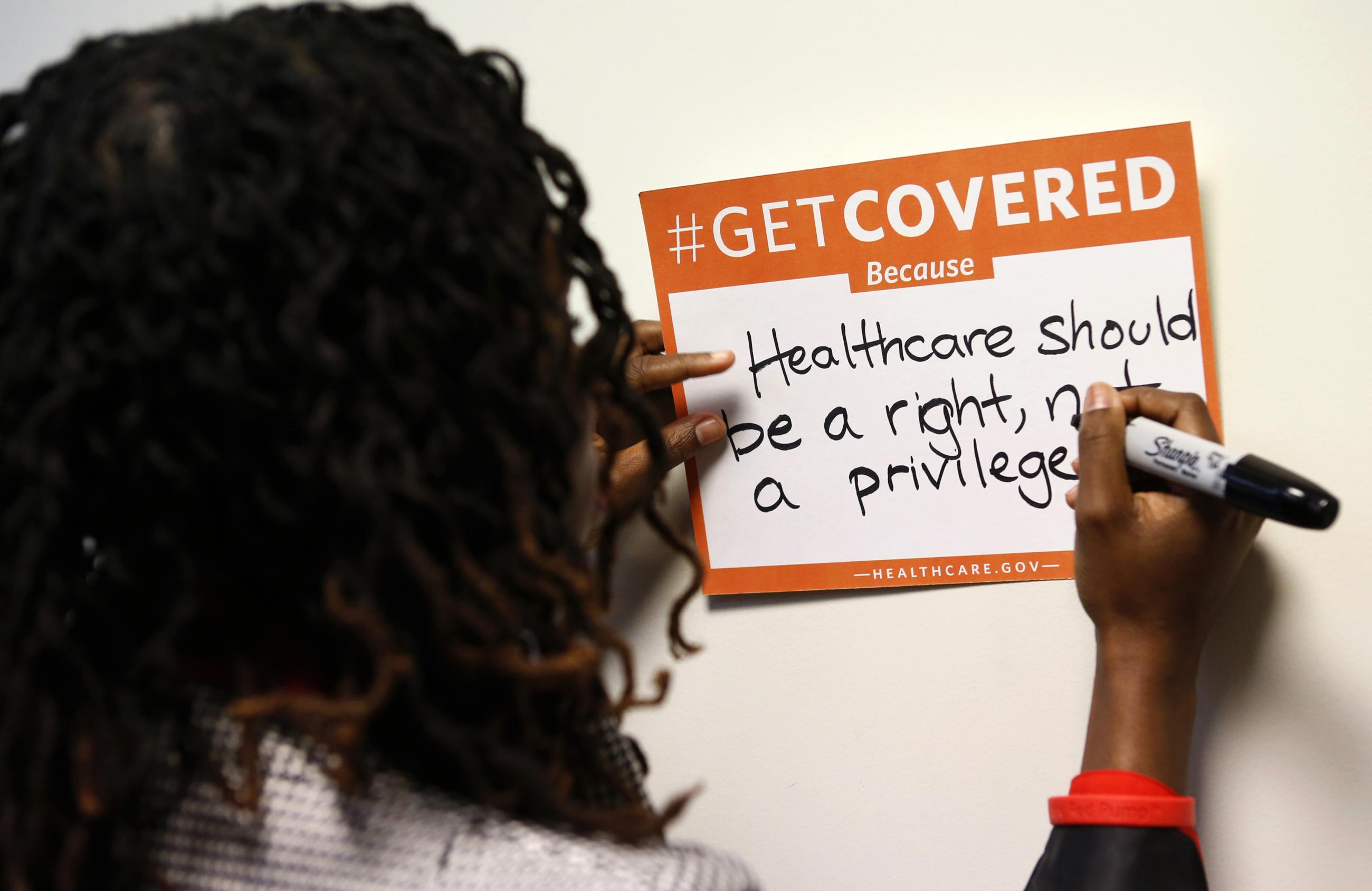
EDITOR'S NOTE: This story includes discussion of suicide. If you or someone you know needs help in the United States, please call the National Suicide and Crisis Lifeline: 988
